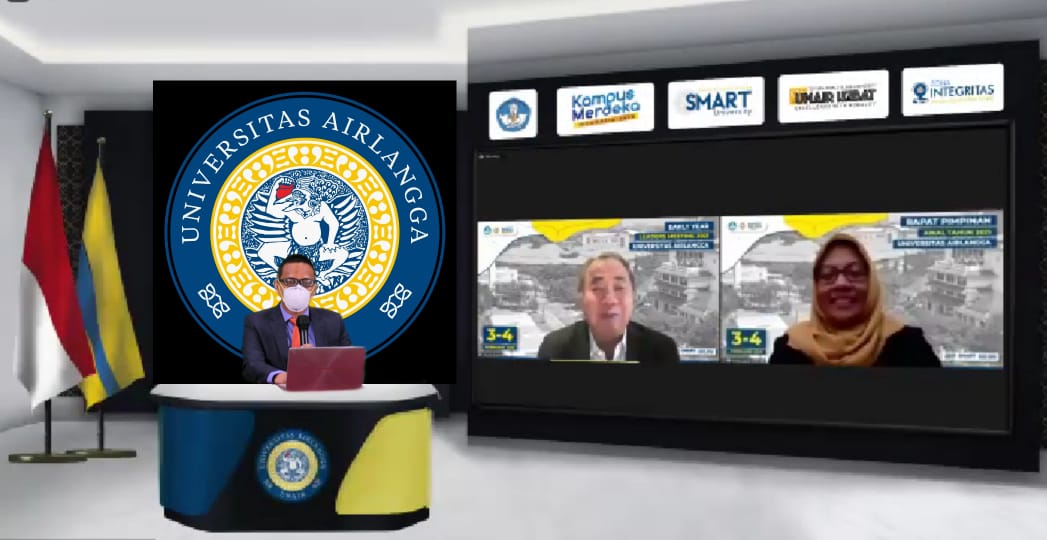UNAIR NEWS – An online board of executive meeting (Rapim) was held on Wednesday, February 3, 2021. Attended by all university and faculty officials of Universitas Airlangga (UNAIR), this meeting also invited several international academics who shared their inspiration in university management.
First, there was Prof. Dr. Yong Zulina Zubairi as Associate Vice-Chancellor (International) Universiti Malaya, Malaysia. In her presentation entitled “Strengthening quality in education through innovation in academic and related areas: Universiti Malaya’s Experience”, Prof. Zulina explained various efforts made by Universiti Malaya in improving the quality of education and innovation in the academic field.
Next, as the second presenter, there was Director of the ASEAN Center, Osaka University Prof. Hitoshi Hisada. In his presentation entitled “Strengthening research capacities and capabilities”, Prof. Hitoshi explained various efforts to strengthen research and collaboration. Moreover, efforts to collaborate with industry to participate in the downstream process of research and innovation carried out by educational institutions.

After the break, the meeting was continued with a presentation from the Deputy President of Innovation and Enterprise National University of Singapore Prof. Freddy Boey, who explained the progress of NUS in developing innovation so that it was able to produce more than 800 start-ups created by alumni. “The university’s innovation orientation must now move from research to commercialization. Not to make money, but to train superior human resources, “said the engineering expert.
Prof. Freddy explained that NUS has three objective orientations in collaboration with innovation and entrepreneurship. The first orientation is the development of entrepreneurs who try to train intellectuals to be able to think and be economically competitive. The second orientation is the growth of innovation and is followed by the orientation of creating a superior business.
These three orientations are reflected in various NUS innovation programs. One of them is BLOCK71 which is the first business and innovation incubator in Singapore. There is also a one-year MSc Venture Creation program that encourages participants to set up start-up companies.
Meanwhile the Graduate Research Innovation Program (GRIP) is a forum for research staff and professors to encourage commercialization through start-ups. “The program has successfully built affiliations with 250 companies and offered funding of over one hundred thousand dollars,” he added.
It has resulted in an extraordinary international network of research and innovation. NUS has consistently sent thousands of students to 15 entrepreneurial hotspot cities in various countries, from the United States Silicon Valley, Beijing, Tel Aviv, Munich, Nagoya, Bandung, and so on.
Prof. Freddy explained that the success of NUS in developing innovation and student skills departed from the ability to adapt to the Industrial Revolution 4.0 which brought the smart platform trend.
“In the last two years, NUS has doubled the quota for computer science students. Digital computers, artificial intelligence, and coding are trends and the future for university innovation spaces, “he explained.
So in a discussion moderated by the Vice Rector for Internationalization, Digitalization and Information, dr. M. Miftahussurur, M.Kes., Sp. PD-KGEH., Ph.D. Prof. Freddy emphasized that academic changes must be executed by all universities, including UNAIR.
“Academic institutions are obliged to produce graduates who are not only relevant in the present, but also in the future. We must be able to become innovation leaders and contribute to the realization of national research. NUS is well on its way to do that. And I’m sure UNAIR is too, “he said. (*)
Authors: Intang Arifia and Nuri Hermawan
Editor: Khefty Al Mawalia





